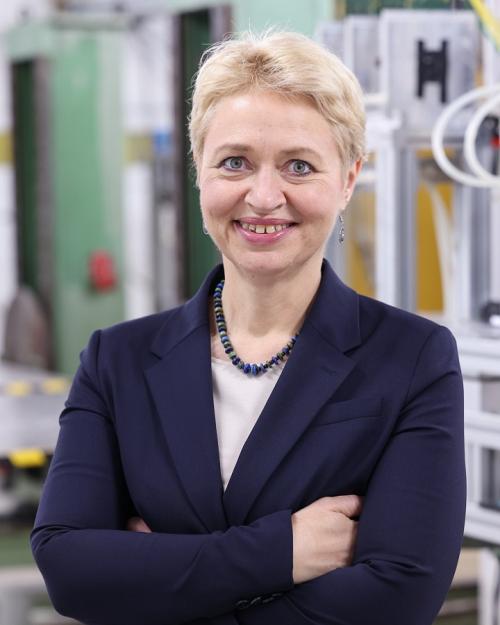Lise Meitner and Vera Rubin were both extraordinary scientists and pioneers as women in the male-dominated field of physics, overcoming many challenges to make major contributions to our understanding of the matter comprising the universe.
In the fall 2024 Bethe Lecture, Beate Heinemann, professor at Universität Hamburg and director for particle physics at DESY (Deutches Elektronen-Synchrotron) in Germany, will share the stories of these scientists and their scientific accomplishments. The lecture, set for Wednesday, Oct. 9 at 7:30 p.m. in Schwartz Auditorium, Rockefeller Hall (with a video livestream) is titled “Pioneers in Physics: Lise Meitner and Vera Rubin, Explorers of the Nuclear Force and Dark Matter.”
Meitner was born in Austria in the late 19th century and played a pivotal role during the first quantum revolution, particularly in understanding of the nuclear force. More than 50 years later in the U.S., Vera Rubin discovered and measured in detail the anomalous rotation of stars around galaxies. Her discovery led to the belief that a halo of dark matter must be part of the galaxy and that it increases the rotation velocity of the stars.
“Beate Heinemann is one of the leading experts in experimental particle physics today, with a vision for the future, and a strong understanding of how we got to this point,” said Julia Thom-Levy, professor of physics in the College of Arts and Sciences (A&S). “We stand on the shoulders of brilliant scientists like Meitner and Rubin, and I look forward to hearing Heinemann’s perspective about how their research and their personal paths toward discovery has influenced so much of what particle physicists are thinking about today.”
As a researcher, Heinemann studies fundamental particles and the role they played in the evolution of the universe. She investigates and measures the weak interaction – one of the four known fundamental interactions, along with electromagnetism, the strong interaction, and gravitation – and searches for dark matter at the Large Hadron Collider (LHC).
In addition to the public Bethe Lecture, Heinemann will give a physics colloquium talk, “Particle Physics Through the Ages: A Century of Discoveries and the Road Ahead,” on Monday, Oct. 7 at 4 p.m. in Schwartz Auditorium, Rockefeller Hall.
Heinemann will also participate in a seminar with Cornell’s Laboratory for Elementary Particle Physics (LEPP), “Particle Colliders: Why and What?” on Tuesday, Oct. 8 at 1:30 p.m. in 401 Physical Sciences Building.
Heinemann received her undergraduate degree and a Ph.D. from the Universität Hamburg and has held positions at universities in Europe and the United States, including Albert-Ludwigs-Universität, Freiburg and the University of California, Berkeley.
She worked on the H1 experiment at DESY, then worked in the international CDF collaboration at the Tevatron, a particle accelerator at Fermilab in Illinois. DESY is a national research center for fundamental science in Germany and part of a worldwide computer network to store and analyze data produced by the LHC in Geneva.
In 2007, Heinemann became a member of the ATLAS collaboration at CERN, which was one of the two LHC experiments involved in the discovery of the Higgs boson in 2012. In 2018, she proposed the LUXE experiment at DESY to study quantum electrodynamics in the regime of strong fields, and she remains part of its scientific leadership.
Heinemann does much public outreach, especially to students, emphasizing the legacies of women scientists, including Meitner and Rubin.
The Hans Bethe Lecture Series, established by the Department of Physics and the College of Arts and Sciences, honors Bethe, Cornell professor of physics from 1936 until his death in 2005. Bethe won the 1967 Nobel Prize in physics for his description of the nuclear processes that power the sun.




